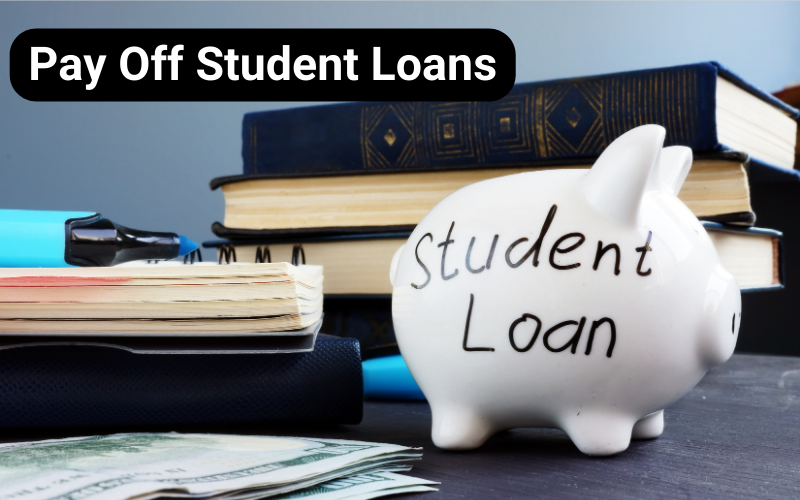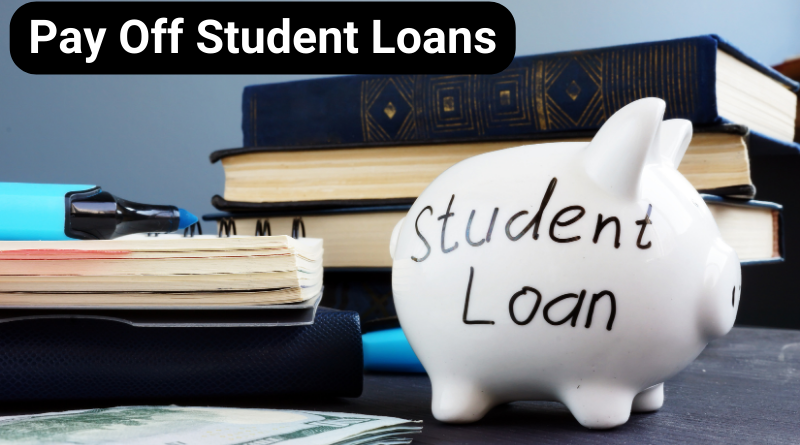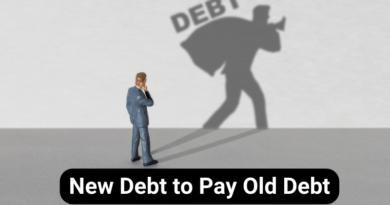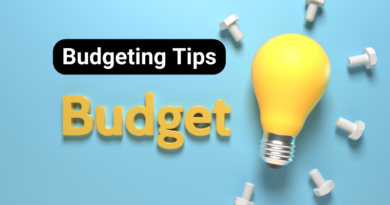How to Pay Off Student Loans Faster: Tips for Recent Graduates
1. Introduction
For recent graduates, student loans often represent one of the most significant financial burdens. While they enable access to higher education, the repayments can feel overwhelming. Paying off student loans faster is a smart financial move—it reduces the total interest paid, frees up money for other goals, and provides financial independence. In this guide, we’ll explore actionable strategies to help you tackle your student loans efficiently.

2. Understand Your Loans
Federal vs. Private Loans
Start by understanding the type of loans you have. Federal loans often come with lower, fixed interest rates and options for income-driven repayment or forgiveness programs. Private loans, issued by banks or lenders, typically have higher and variable rates and limited repayment flexibility.
Know Your Interest Rates
High-interest loans cost more over time. Identify the interest rates for each loan and prioritize those with the highest rates for repayment.
Understand Your Grace Period
Most loans come with a grace period (usually 6 months after graduation) before repayment starts. Use this time to plan your repayment strategy and, if possible, make payments to reduce the principal before interest accrues.
3. Create a Repayment Plan
Evaluate Your Budget
Calculate your monthly income and expenses to determine how much you can allocate to loan payments. Knowing your financial capacity is crucial for creating a realistic plan.
Choose a Repayment Strategy
- Standard Repayment Plans: Fixed monthly payments over a set term (usually 10 years).
- Income-Driven Repayment Plans: Payments are based on your income, often stretching repayment over 20-25 years.
- Graduated Repayment Plans: Start with lower payments that increase every few years, ideal for those expecting higher future income.
4. Make Extra Payments
Pay More Than the Minimum
Always pay more than the minimum required amount. Extra payments go toward reducing the principal balance, which decreases the overall interest charged.
Specify Loan Target
When making extra payments, specify that the amount should be applied to the highest-interest loan or a specific loan you want to pay off faster.
Biweekly Payments
Split your monthly payment into two biweekly payments. This results in one additional payment per year, helping to reduce your balance faster.
5. Reduce Interest Costs
Autopay Discounts
Many lenders offer a 0.25% interest rate discount for enrolling in automatic payments. This small reduction can save you significant money over the life of the loan.
Refinance for Lower Rates
Refinancing involves consolidating your loans into one with a lower interest rate. This is especially beneficial for private loans, but be cautious—it may eliminate federal loan benefits like forgiveness programs.
Make Payments During Grace Period
If you can afford it, start making payments immediately after graduation to prevent interest from accumulating during the grace period.
6. Explore Forgiveness Programs
Public Service Loan Forgiveness (PSLF)
Graduates working in public service or nonprofit organizations may qualify for loan forgiveness after making 120 qualifying payments. Check if your job and loans meet the criteria.
Teacher Loan Forgiveness
Teachers working in eligible schools or high-demand subject areas may receive forgiveness of up to $17,500 in federal loans.
State-Based Forgiveness Programs
Many states offer specific forgiveness programs for professions like healthcare, law, or education. Research options available in your region.
7. Increase Your Income
Take on a Side Hustle
Freelancing, gig work, or part-time jobs can provide extra income specifically for loan repayment.
Monetize Hobbies
Turn your skills or passions, like photography, graphic design, or tutoring, into income-generating opportunities.
Direct Bonuses and Raises Toward Loans
When you receive a raise, bonus, or unexpected windfall, allocate that money directly to your student loans to make significant progress.
8. Cut Back on Expenses
Adopt a Frugal Lifestyle
Reduce discretionary spending, such as eating out, shopping for luxury items, or unnecessary travel. These small changes can add up.
Move in with Family
Living with parents or sharing a rental can save you thousands in housing costs, allowing you to redirect that money toward your loans.
Limit Subscriptions
Cancel unused or non-essential subscriptions (e.g., streaming services or gym memberships) to save money.
9. Take Advantage of Tax Deductions and Benefits
Student Loan Interest Deduction
You may be eligible to deduct up to $2,500 of student loan interest on your federal tax return. This deduction can reduce your taxable income and free up more money for payments.
Employer Contributions
Some employers offer student loan repayment assistance as part of their benefits package. Check if your company provides this perk and take advantage of it.
10. Avoid Common Mistakes
Ignoring High-Interest Loans
Focus on paying off loans with the highest interest rates first to minimize total costs.
Skipping Payments
Late or missed payments result in penalties, damage your credit score, and increase your financial burden. Always make payments on time.
Relying Too Much on Deferment or Forbearance
Pausing payments may provide short-term relief but can increase the total cost of your loan due to accumulated interest. Use these options sparingly.
11. Stay Motivated
Track Your Progress
Use apps or spreadsheets to monitor your loan balances. Watching your progress can keep you motivated.
Set Realistic Goals
Break your total debt into smaller milestones. Celebrating each achievement—like paying off one loan—makes the process feel manageable.
Join Support Groups
Connect with others facing similar challenges through online forums or social media groups for advice and encouragement.
12. Long-Term Financial Planning
Build an Emergency Fund
Having 3-6 months’ worth of expenses saved protects you from relying on loans or credit cards during emergencies.
Focus on Credit Score
Timely loan payments improve your credit score, making it easier to qualify for future loans or lower interest rates.
Plan for Future Investments
Once debt-free, start saving for retirement, buying a home, or other financial goals.
13. Conclusion
Paying off student loans faster requires a combination of planning, discipline, and strategic action. By understanding your loans, creating a repayment plan, and exploring extra payment options, you can reduce your debt significantly. Stay motivated and adopt smart financial habits to secure a brighter financial future. Start today and take control of your student debt—you’ll thank yourself later


